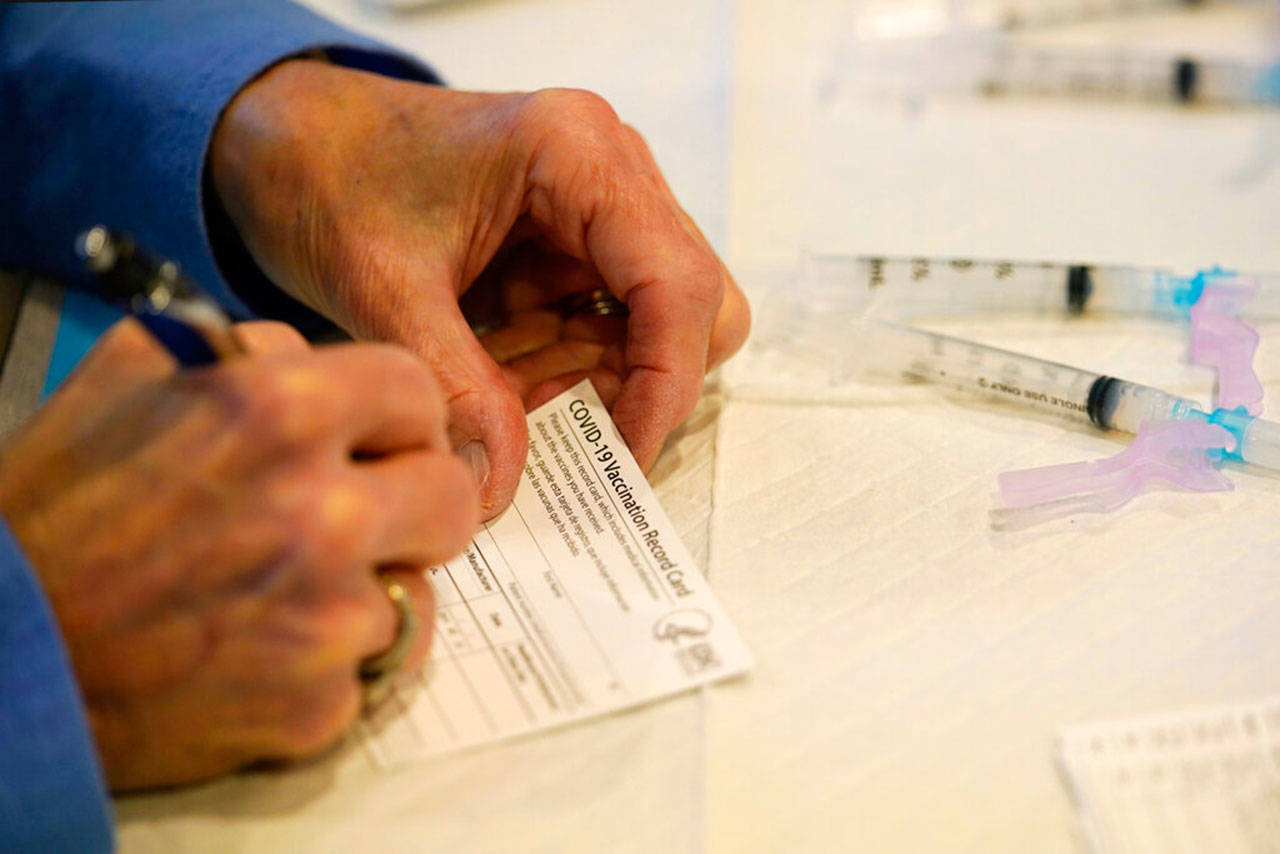By Faye Flam / Bloomberg Opinion
There’s some scientific justification for using vaccine passports to allow vaccinated people — and only vaccinated people — back into restaurants, movie theaters and other indoor spaces. But so far, the Biden administration has declined to impose government standards for such certificates. Without a uniform standard, it may be hard for individual restaurants or other businesses to collect proof of vaccine status. This could hobble the reopening effort and slow the return to normal life.
One major barrier is the ongoing communication problem in the United States. Here, the public health community has chosen to advocate blunt rules rather than offer frank communication about relative risks. Experts have then blamed Americans for being too “individualistic” to follow the rules, even when those rules don’t make much sense; like closing public beaches or playgrounds.
Vaccine passports would require a layer of nuanced communication that has so far been lacking, as well as a different approach to rulemaking. People’s risk varies a lot by age and health status, so what’s reasonably safe for one person might not be for another.
The whole premise of vaccine passports rests on the growing scientific evidence that vaccines not only offer protection from getting sick, they also significantly cut down the risk of getting a mild or asymptomatic case and transmitting the virus to others. But vaccines aren’t perfect; that means vaccinated people at very high risk of death from covid-19 could enjoy dining and entertainment in a safer way if they’re in contact only with other vaccinated people.
A restaurant where everyone is vaccinated offers a much-diminished risk, but given the unknowns associated with new variants, it’s not zero. “Nothing is foolproof, but I do think you dramatically lessen our chances of getting the virus when you come into contact with someone who is vaccinated rather than someone who is not,” says physician and vaccine expert Paul Offit of Children’s Hospital of Philadelphia.
Explaining that is challenging, but it doesn’t take extreme nuance to consider the different needs of an 80-year-old obese diabetic and those of a 22-year-old who lives alone. And at some point, people will be making more decisions about their own risks.
Vaccine passports could have all kinds of emotional and economic benefits, as well as public health ones. The EU is considering vaccine passports to encourage summer tourism, and some airlines are starting to use them to help travelers enjoy more freedom at their destinations. In Israel, the perks that come with flashing an “I’m vaccinated” QR code may be motivating more people to get their shots, Offit says. And if enough people get vaccinated to drive the incidence of the disease way down, Offit believes it could potentially prevent a new wave in the fall of 2021.
Harvey Rubin, an infectious-disease expert at the University of Pennsylvania, said that the current CDC guidelines actually do function as a kind of vaccine passport. “If you’re vaccinated you can hug your grandchildren, and have maskless meetings,” he says. “So we are moving towards something like a vaccine passport,” though it’s an unwritten social contract.
The CDC could go further in this direction, offering some guidance on safer ways to travel; a more nuanced message than CDC’s continued advice against unnecessary travel. Certainly, staying with friends who are also vaccinated and doing outdoor activities should be safer for individuals and better for public health than gathering in large crowds.
Vaccination and vaccine passports aren’t just about mitigating personal risk, of course. There are broader public health concerns. Offit suggests that vaccinated people still have a moral obligation to continue masking and distancing. “Over the next two months, thousands of people are going to die in part because they have not gotten a vaccine; because they could not get it or don’t want to get it,” he says. Once everyone who wants a vaccine can get one, the moral and safety equations will change. Vaccine passports could help bridge the gap until we get there.
Nevertheless, Offit says, vaccine passports won’t work as well in the U.S. as in Israel. “In Israel, they see themselves more as a group and I think we see ourselves as a collection of individuals who have all kind of rights and freedoms including the freedom to transmit a potentially deadly infection,” he says.
That’s a value judgment, however, and it might be wrong. It’s been too easy for public health officials to deflect blame for failed policies onto a disobedient public. We obey rules about smoking and driving. Public health rules and even vaccine passports can work if they’re used in a way that’s reasonable and fair, and delivered with smart, compassionate messages about the good they can do for high-risk people who’ve been shut in for more than a year. For more on the communication challenge facing public health officials, listen to my podcast, “Follow the Science,” on iTunes, Spotify, or wherever you get your podcasts.
Faye Flam is a Bloomberg Opinion columnist and host of the podcast “Follow the Science.” She has written for the Economist, the New York Times, The Washington Post, Psychology Today, Science and other publications.
Talk to us
> Give us your news tips.
> Send us a letter to the editor.
> More Herald contact information.

























